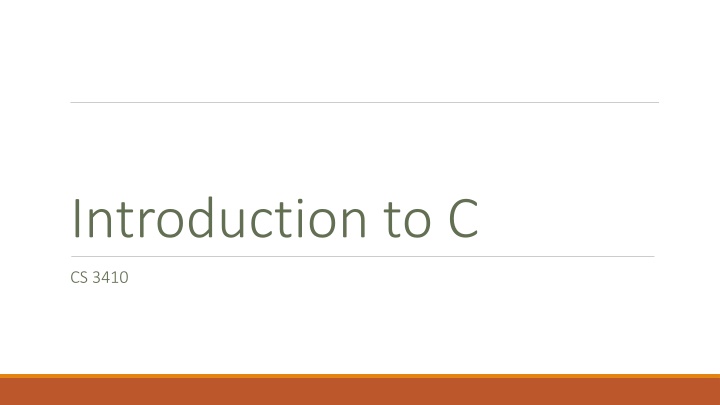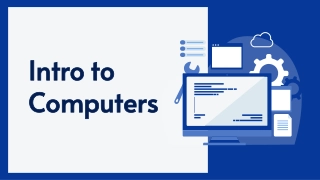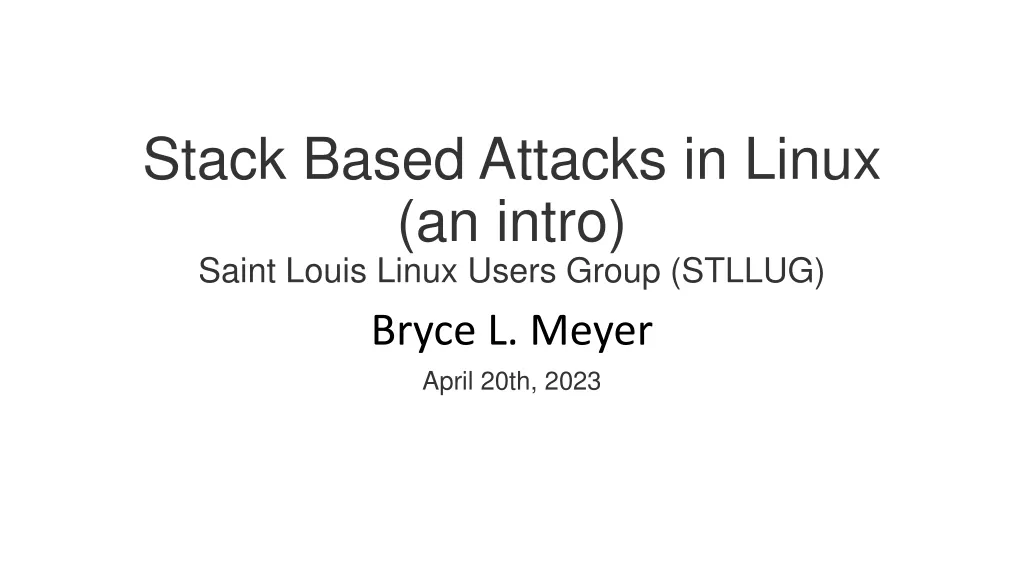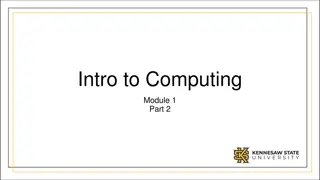
Basics of C Programming: Terminology, Arrays, and Strings
"Explore the fundamentals of C programming language including key concepts such as compiler, debugger, arrays, and strings. Learn about common mistakes to avoid and get insights into C programming structure."
Download Presentation

Please find below an Image/Link to download the presentation.
The content on the website is provided AS IS for your information and personal use only. It may not be sold, licensed, or shared on other websites without obtaining consent from the author. If you encounter any issues during the download, it is possible that the publisher has removed the file from their server.
You are allowed to download the files provided on this website for personal or commercial use, subject to the condition that they are used lawfully. All files are the property of their respective owners.
The content on the website is provided AS IS for your information and personal use only. It may not be sold, licensed, or shared on other websites without obtaining consent from the author.
E N D
Presentation Transcript
Introduction to C CS 3410
Basics of C Developed by Dennis Ritchie in the 1970s. Maps very easily to machine instructions. Even allows inline assembly! Unlike Java or Python, the programmer is in charge of memory management. There is no garbage collector. Not Object Oriented! No inheritance or interfaces.
Terminology Compiler: The program that converts source code into object code (assembly/machine code) You will be using GCC to compile your source before you can run it. Debugger: The program that allows you to inspect a program while it is running. You will be using GDB. A good alternative is to use print statements everywhere! Header: File of function and variable declarations If you want to use functions defined in other files, you must include a corresponding header (.h) file.
Structure of a C Program Which lines are preprocessor directives? Function declarations?
Name of array (Note that all elements of this array have the same name, c) Arrays Array Group of consecutive memory locations Same name and type To refer to an element, specify Array name Position number Format: arrayname[position number] First element at position 0 n element array named c: c[ 0 ], c[ 1 ]...c[ n 1 ] c[0] c[1] c[2] c[3] c[4] -45 6 0 72 1543 -89 c[5] c[6] c[7] 0 62 -3 1 c[8] c[9] c[10] 6453 c[11] 78 Position number of the element within array c
Arrays declaration initialization
Common Array Mistakes C has no array-bound checks. You won t even get a warning! At best you ll get a segfault when you try to run it. Do not use sizeof(array), it will return the size of one single element, not the underlying memory size. SEGFAULT
Strings in C Just null terminated char arrays! For example: CS3410 is equivalent to: char str[] = { C , S , 3 , 4 , 1 , 0 , \0 }; Things to note: <string.h> has common string functions: strlen(s) does not include the terminal character. Be careful when using memory operations which does include the character!
Pointers A pointer is a bit-pattern (generally a number) that represents a memory location. To access the data in the memory that the pointer points to, you dereference the pointer. The type of a pointer tells the compiler what kind of object to expect when it is dereferenced. A double* is a pointer representing the memory location of a double. A pointer does not actually create the data it points to. For the pointer to contain data, some other function must create the data it will point to. This is typically a call to malloc.
Pointers: A visual representation char* d1; d1 = CS3410 ; char* d2; Memory Address 0x07 0x06 0x05 0x04 0x03 0x02 0x01 Value \0 0 d2 = d1+1; //d2[0]== S ; Stack char* d1 1 4 char* d2 3 S d2[6]=? C
Pointers: A visual representation int* d1; d1 = {3,4,1,0,9,8,7}; int* d2; Memory Address 0x18 0x14 0x10 0x0c 0x08 0x04 0x00 Value 7 8 9 0 1 4 3 d2 = d1+1; //d2[0]==4; Stack int* d1 int* d2 d2[6]=?
Pointers to stack variables float* d1; float local = 42.42; d1 = &local; *d1 = 25; Stack float* d1 local = 42.42 local = 25









